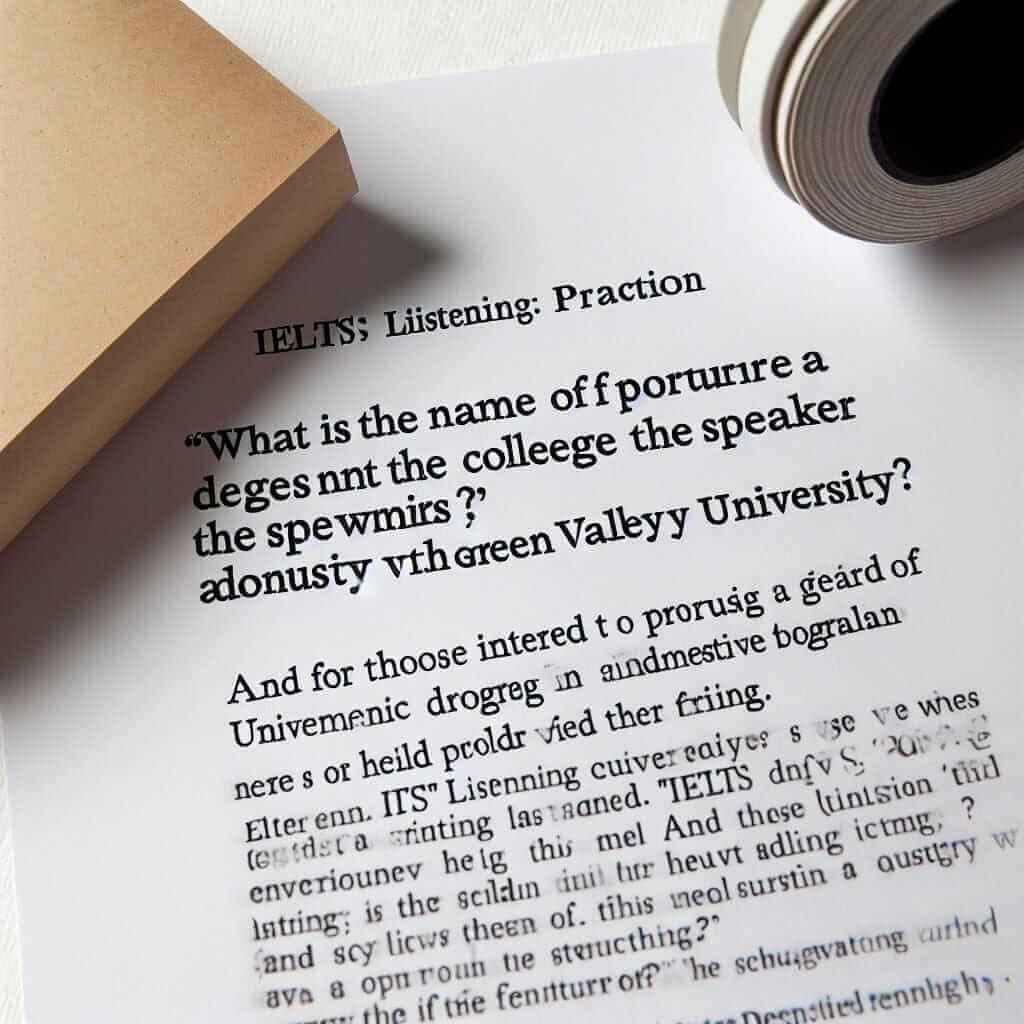As an IELTS instructor with over two decades of experience, I’ve witnessed firsthand the challenges and triumphs students face in their pursuit of IELTS success. The IELTS Speaking test, particularly Part 1, often seems deceptively simple, yet it lays the foundation for a candidate’s overall performance. This article delves into the nuances of IELTS Speaking Part 1, offering valuable insights and practical strategies for educators to effectively equip their students for this crucial stage.
Nội dung bài viết
- Understanding IELTS Speaking Part 1
- Why is Teaching IELTS Speaking Part 1 Important?
- Effective Strategies for Teaching IELTS Speaking Part 1
- 1. Familiarize Students with the Format and Assessment Criteria
- 2. Expand Vocabulary within Common Topic Areas
- 3. Develop Fluency through Practice and Simulated Tests
- 4. Mastering the Art of Extending Answers
- 5. Refining Pronunciation and Intonation
- Example IELTS Speaking Part 1 Questions and Sample Answers
- Conclusion
Understanding IELTS Speaking Part 1
This initial segment is designed to assess the candidate’s ability to engage in a natural, spontaneous conversation on familiar topics. It typically lasts 4-5 minutes and encompasses a range of personal questions related to work, study, hobbies, interests, and daily life.
Why is Teaching IELTS Speaking Part 1 Important?
- First Impressions Matter: Part 1 sets the tone for the entire Speaking test. A strong start can boost a candidate’s confidence and positively influence the examiner’s perception.
- Fundamental Language Skills: It assesses the candidate’s fluency, vocabulary, grammatical range, and pronunciation in a conversational context.
- Building Blocks for Success: Mastering Part 1 provides a solid base for tackling the more complex tasks in Parts 2 and 3.
Effective Strategies for Teaching IELTS Speaking Part 1
1. Familiarize Students with the Format and Assessment Criteria
Begin by demystifying the test format. Explain the structure of Part 1, the typical question types, and the duration. Clearly outline the four assessment criteria:
- Fluency and Coherence: Speaking smoothly and logically.
- Lexical Resource: Using a wide range of vocabulary accurately.
- Grammatical Range and Accuracy: Employing varied and accurate grammar.
- Pronunciation: Speaking clearly and intelligibly.
2. Expand Vocabulary within Common Topic Areas
Equip students with a rich repertoire of vocabulary related to frequently recurring themes such as:
- Work and Study: Job titles, responsibilities, study habits, future aspirations
- Hobbies and Interests: Leisure activities, sports, music, movies, travel
- Daily Life: Routines, transportation, technology, food, weather
Encourage the use of mind maps, flashcards, and vocabulary notebooks to facilitate memorization and recall.
3. Develop Fluency through Practice and Simulated Tests
Fluency is best achieved through consistent practice. Engage students in:
- Role-Playing: Pair students and assign them different roles to simulate real-life conversations.
- Mock Tests: Conduct regular mock Speaking tests to familiarize students with the exam environment and time constraints.
- Record and Review: Encourage students to record their speaking practice and analyze it for areas of improvement.
 ielts speaking practice
ielts speaking practice
4. Mastering the Art of Extending Answers
While concise answers are appreciated, encourage students to elaborate where appropriate. Teach them techniques to expand their responses without veering off-topic:
- Providing Reasons and Examples: “I enjoy reading because it allows me to escape into different worlds. For example, I recently finished a fantasy novel…”
- Expressing Opinions and Preferences: “I prefer traveling by train because it’s more relaxing than flying, and I can enjoy the scenery.”
- Adding Details and Descriptions: “My favorite hobby is photography. I love capturing the beauty of nature, especially sunsets and landscapes.”
5. Refining Pronunciation and Intonation
Clear pronunciation is essential for intelligibility. Focus on:
- Individual Sounds: Identify and correct any persistent pronunciation errors.
- Word Stress: Teach students the correct stress patterns in words.
- Sentence Intonation: Explain how intonation conveys meaning and emotion.
Encourage students to listen to native English speakers through podcasts, movies, or TV shows to develop their ear for pronunciation and rhythm.
Example IELTS Speaking Part 1 Questions and Sample Answers
Topic: Hometown
-
Examiner: “Tell me about your hometown.”
-
Candidate: “I’m from a small coastal town called (town name). It’s a beautiful place with stunning beaches and a relaxed atmosphere.”
-
Examiner: “What do people usually do for work in your hometown?”
-
Candidate: “Well, tourism is a major industry there, so many people work in hotels, restaurants, and shops. Fishing is also quite common.”
Conclusion
Teaching IELTS Speaking Part 1 effectively demands a multifaceted approach that encompasses vocabulary enhancement, fluency development, and pronunciation refinement. By equipping students with the necessary skills and strategies, educators can empower them to confidently approach this crucial segment of the IELTS Speaking test and lay the groundwork for their overall success.


